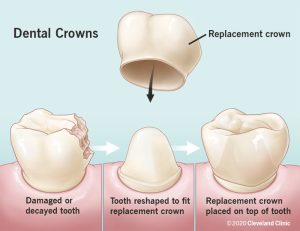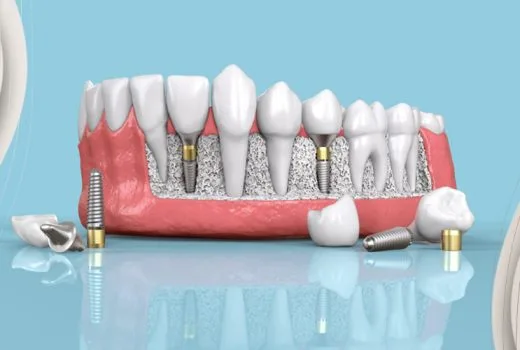A Comprehensive Guide to Dental Implants in Turkey
Your smile is often one of the first things people notice about you, and missing or broken teeth can significantly affect how others perceive you. Fortunately, dental implants offer a lasting solution to restore both the function and appearance of your teeth. Here’s an in-depth guide to understanding dental implants in Turkey.
What Are Dental Implants?
Dental implants are advanced prosthetic devices designed to replace missing teeth. Made primarily of titanium, these implants are embedded into the jawbone, where they integrate with the bone to create a strong foundation for artificial teeth. This process, known as osseointegration, mimics the natural function of teeth, providing a stable and durable solution.
Components of a Dental Implant:
- Implant Post: The titanium screw that is surgically placed into the jawbone.
- Abutment: A connector that fits onto the implant post and holds the crown.
- Crown: The visible part of the tooth, designed to blend seamlessly with your natural teeth.
Procedure for Dental Implants
- Initial Examination and Consultation: The process begins with a thorough evaluation by your dentist. They will assess your oral health, review your medical history, and determine your suitability for dental implants. This may involve a discussion of your expectations and any potential concerns.
- Imaging and Planning: Detailed scans and X-rays of your teeth and jaw are taken to create a precise treatment plan. These images help your dentist map out the exact placement of the implants to ensure optimal results.
- Implant Placement: During the surgery, a titanium post is inserted into the jawbone through a small incision in the gum. Depending on the number of implants needed, the procedure may be performed under local anesthesia or sedation. A temporary denture may be provided while the implant integrates with the bone.
- Healing Period: The healing period, known as osseointegration, can take several weeks to months. During this time, the implant fuses with the bone, providing a stable foundation for the final restoration. This period is crucial for the success of the implant.
- Abutment and Crown Fitting: Once the implant has fully integrated with the jawbone, an abutment is attached to the post. This piece serves as a connector between the implant and the crown. After the gums heal around the abutment, a custom-made crown is placed on top to complete the restoration.
- Follow-Up and Maintenance: After the procedure, regular follow-up appointments are essential to monitor the health of the implant and surrounding tissues. Proper oral hygiene and routine dental checkups will help ensure the longevity of your implants.
Benefits of Dental Implants in Turkey
- Natural Look and Feel: Implants are designed to mimic the appearance and function of natural teeth, providing a seamless and natural smile.
- Bone Preservation: Unlike dentures, implants help preserve jawbone density by stimulating the bone, which prevents bone loss and changes in facial structure.
- Low Maintenance: Implants can be cared for like natural teeth—regular brushing and flossing are sufficient, eliminating the need for special cleaning solutions.
- Stability and Functionality: Implants provide a secure fit and restore full chewing function, preventing the shifting of surrounding teeth that can occur with other types of dental restorations.
- Durability: Implants are highly durable and can last a lifetime with proper care, making them a cost-effective long-term solution compared to other restorative options.
Dental Implants Side Effects and Considerations
While dental implants offer many benefits, there are some potential side effects and considerations:
- Cost: Dental implants are typically more expensive than other restorative treatments due to their complexity and the precision required in their placement.
- Treatment Duration: The entire process can take several months, including the healing period and final restoration.
- Additional Procedures: Some patients may require additional procedures, such as bone grafts, if there is insufficient bone to support the implant.
- Risk of Infection: As with any surgical procedure, there is a risk of infection. Choosing a reputable dental practice and following post-surgical care instructions are essential to minimize this risk.

Types of Dental Implants
- Titanium Implants: The most common type, known for their strength and compatibility with the jawbone.
- Ceramic Implants: Made from biocompatible ceramic materials, these implants are a good option for patients with metal sensitivities. They are often used for patients seeking a more natural aesthetic, though they require precise placement.
- Crowns: The visible part of the implant, crowns can be made from various materials, including ceramic, porcelain, or metal. Your dentist will recommend the best material based on the location of the implant and your individual needs.
FAQs About Dental Implants in Turkey
- Do You Need Anesthesia? Yes, most dental implant procedures are performed under local anesthesia to minimize discomfort. For more complex cases or multiple implants, sedation or general anesthesia may be used.
- How Painful Are Dental Implants? The procedure itself is typically painless due to anesthesia. Post-operative discomfort is common but usually manageable with over-the-counter pain relievers. Most patients experience only mild discomfort within the first week.
- How Long Does the Procedure Take? The initial placement of implants generally takes one to two hours per implant. The overall treatment timeline, including healing and crown placement, can span several months.
- Do You Need Aftercare? Yes, regular dental checkups are essential to ensure the health of your implants and surrounding teeth. Follow your dentist’s care instructions and schedule routine cleanings every six months.
- How Long Do Implants Last? With proper care, dental implants can last a lifetime. However, the crowns on the implants may need to be replaced over time due to wear and tear.
- Why Are Dental Implants Expensive? The cost reflects the specialized nature of the procedure, including the materials used and the expertise required. Customization and precision in planning and placement contribute to the overall expense.
- How Do You Know If You’re Eligible for Dental Implants? Most healthy adults are candidates for dental implants. Children and teenagers should wait until their jawbone is fully developed, usually around age 16 for girls and 18 for boys.
In Conclusion
Dental implants in Turkey provide an effective and aesthetically pleasing solution for replacing missing teeth. With benefits like natural appearance, bone preservation, and durability, they represent a significant advancement in dental restoration. If you’re considering dental implants, a consultation with a qualified dental professional can help determine if this option is right for you.
Free Consultation Reach out to us for a complimentary consultation to explore how dental implants can enhance your smile and improve your oral health.

